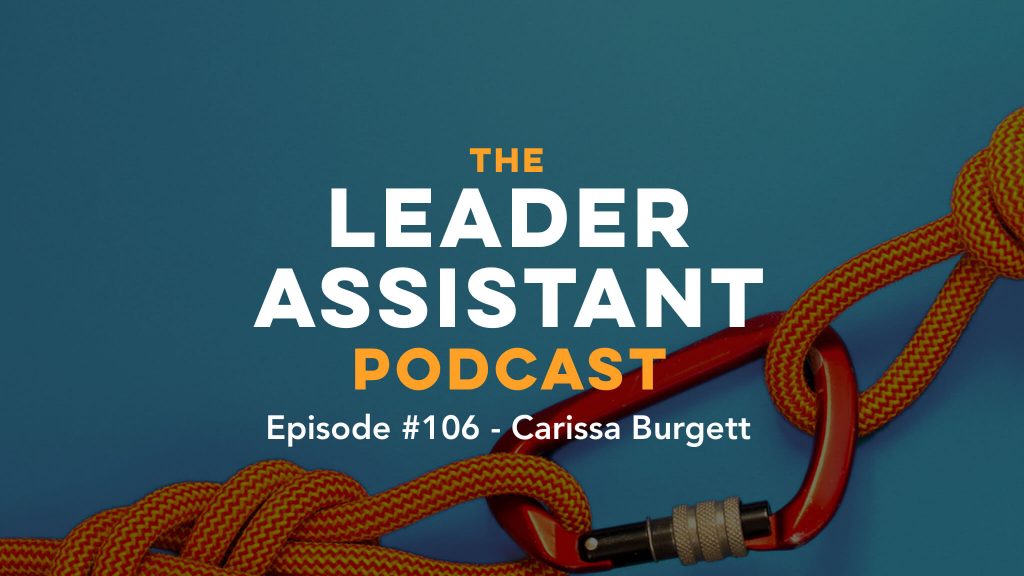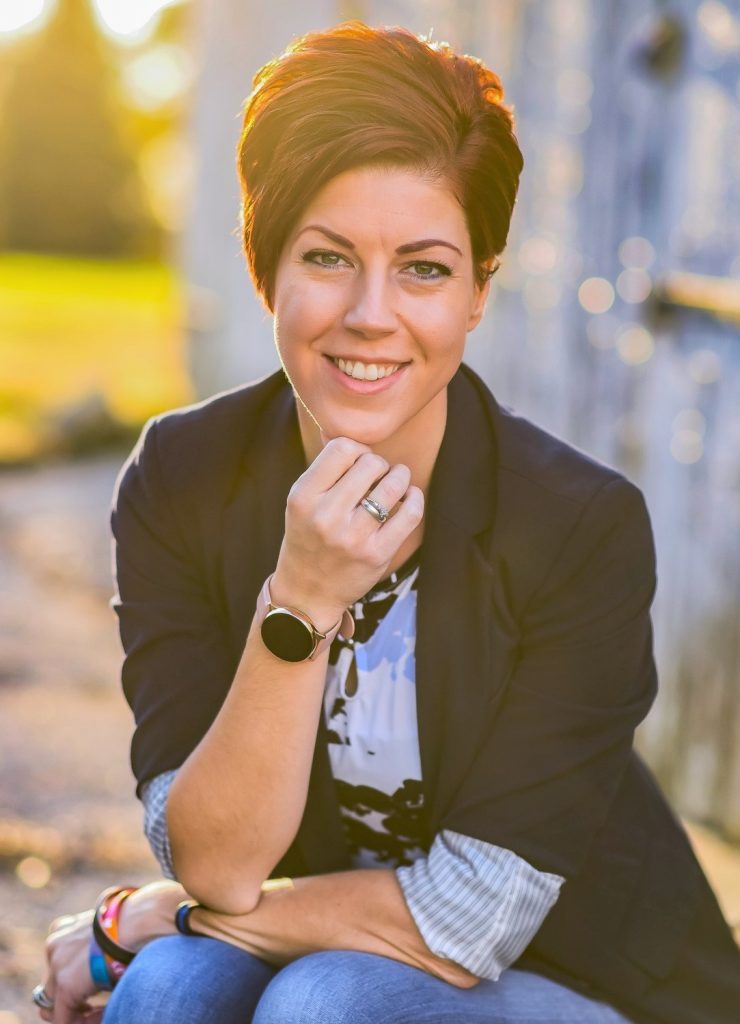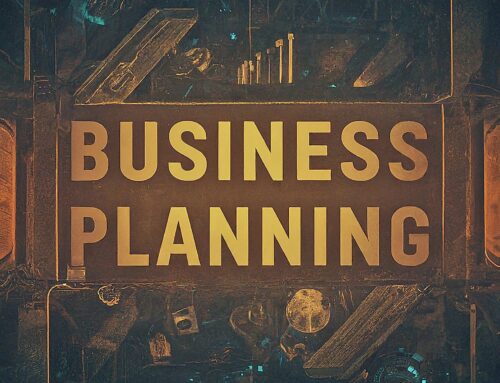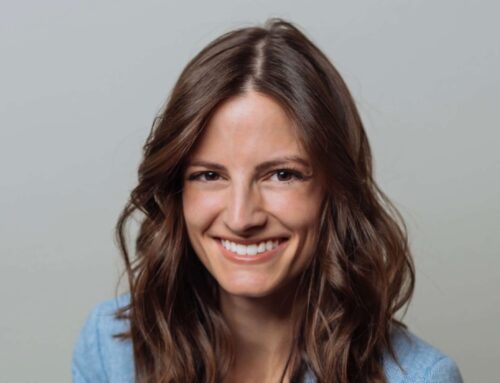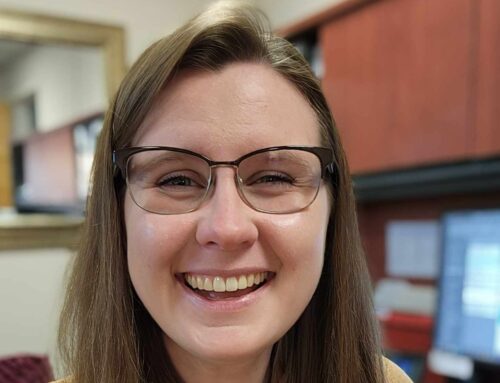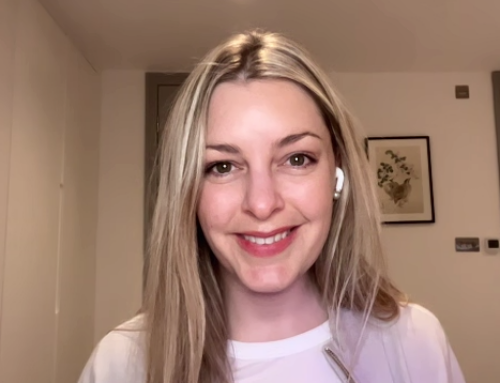Carissa Burgett has years of experience as an assistant at the C-suite level, and she’s passionate about being a strategic business partner and mentor to fellow admins.
For her entire life, Carissa has had severe chronic pain. In this episode, she shares how she manages the pain while maintaining focus and professionalism in her career as an assistant. She also shares tips on self-care and how to have empathy in the workplace.
EPISODE SPONSOR
Elkhorn Peak Cellars is a small, family-owned vineyard and winery on the south end of the Napa Valley. Owned and operated by father/daughter duo Ken and Elise, Elkhorn Peak Cellars makes only 1,000 cases of wine annually. You won’t find their wines in any wine shops, so their fruit and wines continue to be one of Napa Valley’s best kept secrets.
Reach out to the amazing team at Elkhorn Peak today for your personal and corporate gifting wine needs at elkhornpeak.com/leaderassistant and let them know you heard about them on The Leader Assistant Podcast!
LEADERSHIP QUOTE
And one day she discovered that she was fierce, and strong, and full of fire, and that not even she could hold herself back, because her passion burned brighter than her fears.
– Mark Anthony
THE LEADER ASSISTANT PREMIUM MEMBERSHIP
Check out the Leader Assistant Premium Membership for ongoing training, coaching, and community.
LEADER ASSISTANT LIVE EVENTS
Check out our constantly updated schedule of events for admins and assistants at LeaderAssistantLive.com.
THE LEADER ASSISTANT BOOK
Download the first 3 chapters of The Leader Assistant: Four Pillars of Game-Changing Assistant for FREE here or buy it on Amazon or Audible.
JOIN THE FREE COMMUNITY
Join the Leader Assistant Global Community here, or the Facebook Group here for bonus content and to network with other assistants who are committed to becoming leaders!
CONNECT WITH CARISSA
- Carissa on LinkedIn
- Resources Carissa recommends for more on the topic of Chronic Pain:
- Chronic Babe, by Jenni Grover (she has fibromyalgia and is now a creative resilience trainer, helping chronic pain sufferers through creative outlets)
- Invisible, Not Broken Podcast
- Chronic Pain Support Online | Chronic Pain Social Network – MyChronicPainTeam
- themighty.com
- Apps
- Headspace (great for meditation and mindfulness to use on your bad days)
- Manage my Pain App (great for tracking daily habits and pain levels)
ABOUT CARISSA
Carissa Burgett is the Assistant to the President of the Pennsylvania Chamber of Business & Industry and Board Administrator. With years of experience at the C-suite level, she knows this career takes laser focus, constant professionalism, and a lot of creative quick thinking. She is passionate about being a strategic business partner and mentor to fellow admins. As an agent of change, Carissa is constantly looking to grow in her field earning many certificates including her CAP certification. In her free time, she is a Girl Scout leader to her daughter’s Brownie troop and is a fierce advocate for self-care and chronic pain management.
SUBSCRIBE
Subscribe to The Leader Assistant Podcast so you don’t miss new episodes!
You can find the show on Apple Podcasts, Spotify, Google Podcasts, Pandora, and Stitcher.
Join my email list here if you want to get an email when a new episode goes live.
LEAVE A REVIEW
If you’re enjoying the podcast, please take 2 minutes to rate and review the show on Apple Podcasts here. Each review helps me stay motivated to keep the show going!
—
EPISODE TRANSCRIPT
Carissa Burgett 0:00
I’m Carissa Burgett and today’s leadership quote comes from Marc Anthony. And one day she discovered that she was fierce and strong and full of fire. And that not even she could hold herself back because her passion burned brighter than her fears.
Podcast Intro 0:17
The Leader Assistant Podcast exists to encourage and challenge assistants to become confident game changing leader assistants.
Jeremy Burrows 0:27
Thank you so much for listening. Oh, I’m old and used to host my data. Hey, friends, welcome to episode 106. I wanted to first thank you again for listening. You can check out the show notes at leaderassistant.com/106. Second, I wanted to share a special note about my sponsor for this episode. As an executive assistant, I’m asked to send gifts for various occasions to clients, board members, prospects and employees all the time. Personally, I like to send wine because who doesn’t like wine, right? But shipping wine is challenging and picking out amazing wine is even more challenging. Thankfully, my friends at Elkhorn Peak Sellers are here to help. Elkhorn peak is a small family owned vineyard and winery on the south end of the Napa Valley. They are owned and operated by a father daughter duo kin and Elise. Elkhorn peak makes only 1000 cases of wine annually. You won’t find their wines in any wine shops and their fruit and wines continue to be one of Napa Valley’s best kept secrets. So the next time your executive asks you to send them something nice, don’t think twice. Reach out to the family team at Elkhorn peak cellars for your corporate gifting needs. They will carefully and craftily package your wine and even include a hand written note. Visit Elkhornpeak.com/leaderassistant to step up your gifting game today. Again, that’s ElkHornpeak.com/leaderassistant. All right, let’s get to the interview. I hope you enjoy it. Hey everyone. Thanks for tuning in to The Leader Assistant Podcast that your host Jeremy Burrows and today I’m speaking with Carissa Burgett she is the Assistant to the President and Board administrator at the Pennsylvania Chamber of business and industry. That’s a long title. Carissa, how’s it going?
Carissa Burgett 2:42
It’s great. Glad to be here. Thanks for asking.
Jeremy Burrows 2:45
So why don’t you tell us a little bit about who you are, where you came from, and how you got into the EA role.
Carissa Burgett 2:53
Thanks. So I’ve been doing this role this career, I guess you could say for about nine years now. And I love it. I started off working and one of my first real jobs. I know, it’s usually a question you ask. I started working at Kaufman’s department store. And when I turned 18, it’s all I wanted to do was work there. I thought that store was awesome, and classy and great. And it was kind of my introduction to customer service, which really kind of led into the job that I have now. And I worked there for three years and learned quite a lot of lessons including you know, how to be responsible, which most people learn on their first real job and how to be on time. And you know, customer service was a huge part of that job. And I don’t know anybody who worked at coffins, it was then bought out by Macy’s. But you know, they all had to wear black and you had to wear suits. And it was very fancy with chandeliers. And so I learned a lot about, you know, style even as well. So that was those were some big things that I learned and, and from there. I actually got married pretty young, I got married at 20. My husband was Mitt was military for many years for 10 years. And I married him when he was a young soldier, just getting in the military. And I, you know, was really excited about getting away from my small town here in Pennsylvania and moving away and, and getting to see the world. But that came with a lot of responsibility getting married at 20. And even though I had some experience in the workplace, working at Macy’s and some of those things, it’s really different when you move away from home. And so I moved away up to New York and lived there for a couple years and my husband was deployed and really learned how to be independent and self sufficient. And when he got back from deployment after about a year or so, we moved to Virginia and from there had a child and when I was looking to get back into the workforce, I had been out of work for a little while it was really hard. It’s I don’t know if you know much about military life, but it’s super hard to have a job when your spouse is always deployed, especially when you have a kid and so I I decided to ease my way back in and I started volunteering at Army Community Service. And they do a lot of different things when it comes to helping the military soldiers, like go back into housing and kind of come back into the real world after the deployments. And they asked me if I would be a relocation assistant. And I’m like, Yeah, sure, you know, goes right hand in hand with customer service and helping soldiers. And I absolutely loved it. And it really opened my eyes to the world of administer, you know, I don’t know, being an assistant, and you know, Administrator, all those types of things. And from there, it just kind of flourished into where I am today. I’m the assistant, like you said, at the Pennsylvania Chamber of business and industries, and it’s a great time to be there. And there was a lot of growth going on. And yeah, so I know, that’s a lot of information. But it’s definitely been a progression over the last nine years to get where I’m at today. And I’ve really worked hard to do it. So
Jeremy Burrows 5:57
awesome. So what’s your favorite part about being an assistant,
Carissa Burgett 6:02
I’m getting to have my hand and so many, you know, buckets, I guess. There’s a lot going on, especially where I work. I’ve only actually been working at my current job right now for about eight months. I’ve been in the admin field, like I said, for nine years. But I came into this role. And it’s a really big role. And it’s awesome. And there’s a lot of cool responsibilities, like working with government affairs, I type a lot of the memos that go over to the House and Senate, as well as a really great thing that I love is being a board administrator. So we have, you know, 62 directors, and we have lots of board meetings throughout the year, we have subsidiary boards, committees, and, you know, just being able to play a big part in the leadership, and being able to have my hands and all those pots and making sure that everything runs smoothly is is probably my favorite thing.
Jeremy Burrows 6:57
Would you have a tip to share on just the board side of things, because I know a lot of assistants listening, have to handle board minutes, and, you know, board retreats and all those fun things, is there anything that you would share that, you know, just a practical, hey, you know, if you’re managing a board, this is something to consider.
Carissa Burgett 7:21
I’m really reaching out to other assistants. I know this sounds a little crazy. But something that I’ve been working really hard towards, at the Chamber is connecting with my director of the boards, their assistants, and making sure that their their assistants understand how the board works, because what I found in the last couple of months is, you know, these executives, they have to have all the materials for the board meetings, and they have to make sure they register for the board meetings. And the thing is, a lot of these executives aren’t actually doing that their assistants are. And so I have taken upon myself to reach out to these wonderful ladies and say, Hey, let me train you on how to use the board portal. Let me train you on how to make sure that your executive is registered. And I will tell you doing that backwards, making sure that all of that is running and that you answer all their questions really helps in the long run. Because I will tell you one of the worst things that can happen and I get this happens for everybody. But the day of a board meeting, getting phone calls from all these different assistants going, I tried to log in, I can’t get into the webinar, or I you know, my executive doesn’t have the materials that they need. And now that they’re trained, I hopefully knock on wood don’t have to deal with that as much close to the meeting and just taking the stress off of their plate and the stress off of mine. So I just highly recommend if you’re a board administrator, you know, using your resources, connecting with other assistants, making sure that they have what they need. Because it can be daunting when you have a lot of executives who serve on a lot of different boards and trying to understand what the requirements are for that.
Jeremy Burrows 8:58
That was a great tips. Always get a network and connect with the other EAS because they were on the show, right? Yes, sir. Okay, so let’s get to the topic of today’s episode, we’re going to talk a little bit about self care. We’re going to talk about empathy. And we’re talking about chronic pain. So could you talk a little bit about the challenges you’ve had in learnings you’ve had in that whole world of self care and challenging chronic pain and empathy and all that fun stuff.
Carissa Burgett 9:33
Yeah. So I’m super passionate about self care. And, you know, just making sure that you aren’t just physically at work every day, but you’re mentally able to be there and that you’re healthy enough to be there. And I unfortunately have been dealing with chronic pain my whole entire life. So and again, I just, you know, I just want to put this out there too. I’m the reason why I’m so passionate about this. So I want to talk about it is because I know that there’s a lot of us out there who suffer from chronic pain and get up every single morning and go to work. And we function and not even just work, but people who have chronic pain who have multiple children and are taking care of kids or taking care of, you know, their parents or, or, you know, whatever, and it’s hard, and sometimes it can feel really lonely. And so, you know, in the role that I’m in, you know, one thing I will say about assistance is and you may agree with me on this is we’re kind of lone Wolf’s, it’s something I’ve always identified myself as, as a lone wolf. And I love that I love kind of being on my own being independent, you know, and I’m also pretty much fiercely independent. And I love that. But one thing that can come with being such a lone wolf in this role is a little bit of loneliness, just in general. And then when you throw on chronic pain, and not having anyone to talk to you about it, and showing up at work, and trying to, you know, dress nice for a board meeting and wearing my heels all day standing, and nobody has any idea how much pain I’m in, it can be really overwhelming. And I just wanted to take this time to share with everybody you know, you’re not alone. And, you know, some of us have been dealing with it since birth, like myself, when I was born, apparently, my neck got stuck. And I had some other issues with my neck when it was when I was in my mother’s womb. And so when I came out, I actually was born with kyphosis of the spine. And it was very painful. And I actually didn’t learn how to walk until I well, I didn’t learn how to pick up my head, I was unable to pick up my head till I was almost two years old. And it was a little after two that I started walking. And so that really delayed some of the natural growth that happens in babies. And I definitely was delayed in some other ways as well. And you know, from there, I just constantly had issues, and I had to go to the chiropractor and I had to go to physical therapy. And it was it was very painful as a baby. And I don’t remember any of this, but my mother will tell me, you know, I cried a lot as a baby, and she felt a little helpless. And you know, as I got older, I had some other issues arise. I also have occipital neuralgia, which is where all my nerves that run my occipital nerves that run in the back of my head, are inflamed and damaged. And basically what happens is I’m constantly in pain, and I have headaches. And so all of this kind of goes hand in hand with each other. One of them’s my upper back, one of them’s my neck. And then I also was born with Thoracic Outlet Syndrome. If anyone’s familiar with that, it’s when your blood vessels and your nerves in the space between your collarbone and your first rib are compressed. And so the funny thing is, I’ll give a quick example when I was in elementary school, I remember I don’t know if you’ve ever experienced this Jeremy. But you know, in school, when a teacher you’re waiting for them to call on you, and you have your hand up in the air, and you’re just waiting and waiting for them to call on you. Well, I couldn’t wait. So if they didn’t call on me, within about 10 seconds, I had to put my hand down. And my whole life I thought will everybody else must have the same problem? How can they keep their hand up because my arm would fall asleep. And that’s one of the side effects of Thoracic Outlet Syndrome is you don’t get enough blood throat blood flow through your arm. And so your arm goes completely numb after about 10 or 15 seconds. Yeah, so you know just things like that. And then it just constantly being in pain. And so I’ve actually been seeing a chiropractor since I was six or seven years old. And I see them every two weeks religiously. And that is part of my healthy body routine is seeing a chiropractor and I don’t feel bad about it. I don’t feel shame about it. It’s part of who I am and part of what I have to do to be healthy and and I just I just do it. So yeah, I’ve been through a lot and beyond that. I’ve had a lot of different procedures. I’m not sure if anybody who’s dealt with chronic pain has ever had Botox injections. And I’d love to tell you that I had Botox injections because it got rid of my wrinkles. But unfortunately, I got botox injections, to try to get rid of some of my headaches and my pain. And I’ve also had a procedure called a radiofrequency ablation, where they cauterized the nerve endings in the back of my neck I’ve had that done numerous times. And all this stuff is to say that, you know, people who have chronic pain, we go through a lot of different procedures to try to find the right fix, right. And I’ve been dealing with this forever. And I still don’t know what the right fix is. The only thing I know is that through meditation and getting massages and acupuncture are definitely help. And I tried to do that as frequently as possible to keep myself on a healthy track and take care of my body.
Jeremy Burrows 14:56
Wow. So first of all, thanks for sharing. I know that’s a A lot, a lot that you’ve had to go through, unfortunately, and a lot you have to still deal with. So appreciate you being open about that. What? What’s something that you would say to those who are also experiencing chronic pain? And they’re trying to find work? Let’s say they lost their job because of COVID? Or they’re, you know, looking for a better role with a different executive? How open or not open? Have you been in your interview process? Or how? Yeah, I mean, I don’t know, I just something came to my mind. I’m like, if you’re looking for work, and you’re you know that you have these issues, how do you communicate that with a potential employer?
Carissa Burgett 15:55
Well, first of all, I look at the job posting, I know, this sounds a little basic here. But when I was applying for jobs, you know, eight months ago, when I was I left my one career and was coming into another, I made sure that I didn’t apply for any job that said, I had to lift more than 30 pounds. You know, I don’t know if you’ve looked at job posting recently. But a lot of them will say things like that, like, must be able to lift 65 pounds or whatever. And for me, that’s impossible. I mean, I can’t even work out my upper body, and it’s really stinks. So that’s something just on a basic level that I do. And, and also, even on the job interview, I don’t say anything on the first interview, you know, usually nowadays, you have a couple interviews with your boss when you, you know, go to get hired somewhere. But you know, I know in this past job, I talked to my HR, the lady who was hiring me, her name is Dee. And I told her, I said, Look, you know, I have chronic pain, and I deal with these kinds of things. And I didn’t really go into detail, I just told her that it doesn’t usually affect my job. And I will tell you that I don’t usually let it affect my job, because a huge part of how healthy and the way I look today is about how I take care of myself on my free time. And at work. But I’ve been very fortunate, it’s been very rare that my chronic pain has affected my job in the way of like, Oh, I’ve had to go home because my headache was so bad, or I had to go home because my back just hurt so bad I couldn’t, I felt like I couldn’t breathe, it’s, I haven’t had to really deal with that. Because I usually take care of myself well enough that I know, when I’m going to have bad days, and I you know, take a day off or a schedule a day off. Now, I will say that not everybody has that gift, you know, there are a lot of people who suffer from chronic pain, you know, like fibromyalgia and they’re in pain all the time, and then all of a sudden, they have a flare up, and they don’t know when it’s gonna happen. So I would say for people who are applying for jobs, you know, be as honest as you feel comfortable. If you’re in a situation where your chronic pain does affect you, to the extent where it’s, it’s you have to go home early, or you know, you’re too ill, you know, be careful with what you say, but make sure that you are making them somewhat aware. And make sure that you tell them that you’re still a good, you know, executive assistant, and give yourself some props here. Because just because you’re dealing with chronic pain, and just because you may have to go home every once in a while because you’re not feeling well, you know, doesn’t have to reflect poorly on how great of an assistant you are. And that’s what I’ve always a message I’ve always tried to get across is just because I have this condition doesn’t make me doesn’t make me less of an assistant.
Jeremy Burrows 18:35
So yeah, that’s, that’s, uh, leads to my next question, which was, how do you maintain your focus and professionalism? While you know, behind the mask, if you will, you’re in a lot of pain.
Carissa Burgett 18:51
Sometimes it’s really hard, I will be completely honest, it can be really overwhelming. So I’ll give an example. So as a board administrator, I was also dealing with boards in my last job as well. And I also dealt with a lot of different events and big events, and they all are kind of the same thing when it comes to the time involved in the effort for the meetings. And I will say that I do a lot of pre planning. And it’s not just about pre planning and a sense of like, you know, oh, do I have all my materials for the meeting? Do I have all my webinar, you know, guests set up? It’s also about, you know, where am I at, so I always do a little a little self check. When I wake up in the morning, I always give myself a minute to lay in bed and I kind of feel I let myself feel what hurts and the reason I do that like I literally will lay there and I’ll be like okay, is my back hurting that bad today? Is my neck on fire? You know, in my heart, what is what is my pain range? And if it’s really high, then I make sure I take the right medication, if I can manage and I think you know what, it doesn’t feel that great, but I can you know I think I can probably get through for most of the day all pack some medicine for me, and I’ll wait until later in the day to take it. So these are things I think that are really important is just kind of planning ahead. And really being being connected to your body, and really understanding your needs. And so when I have big events, I always try to take off the day after. And the reason why is I think anybody should do that if you’re going to plan a two day you know, work retreat or something, and you know how many hours you’re putting into it as assistants as we always do, we want it to be perfect, take a half day that Friday, or take a full day off, take some time for yourself, you know, keep the kids in school or in daycare, go you know, if you’re a girl or whatever, go get your nails done, or, or go get a massage. And I do that for myself. And I let myself deal kind of with the pain after the fact, if that makes sense. And I also another big thing I’ll say is I always pack an extra pair of shoes. So I’m a heel girl, I will I will wear heels all day long. And I love heels and I feel, you know, great in them and powerful in them as All women should. But you know, if it starts to get too much, I will always take my heels off and wear flats. And that’s like my number one sign I probably give too TMI here. But if you see me walking around in the workplace and flats, it’s only because I’m in pain. And so just those little things to try to help my own body out is really important. And I would recommend that to anybody who deals with chronic pain is, you know, be aware of your warning signs? And what are the things that you know, can set you off, and really try your hardest to be ready for them so that it doesn’t affect your work?
Jeremy Burrows 21:40
So do you have like a code word or an understanding with your executive that, you know, hey, you know, this, it’s getting a little overwhelming, I need to slow down today, or I’m gonna need to take tomorrow off like or do you just say, Hey, I gotta take a personal day.
Carissa Burgett 21:59
Usually just the personal day, again, I’m kind of in the early stages, building my relationship with my executive, and he’s wonderful, and we really bonded. And I really think that I know that he will be supportive, and he has been supportive on days that I don’t feel that great. And sometimes I’ll say to him, you know, today isn’t the best today, I’m just kind of, you know, managing. But, you know, honestly, I think it’s just a matter of going in there and just saying to him, You know what, I don’t feel well, and I gotta go home. You know, the only downfall for me is I have to drive an hour to work every day. So it’s, it’s sometimes a long drive to get myself home. But you know, I usually just turn on your podcast, and it makes the drive go by quick.
Jeremy Burrows 22:42
There we go. So okay, let’s talk to those who aren’t dealing with chronic pain and aren’t educated in the difficulty of managing this and maybe just don’t even know what to say to their colleagues who are dealing with us. How can we be empathetic to those really struggling with chronic pain? And what should we say? What shouldn’t we say?
Carissa Burgett 23:17
Yeah, well, if you don’t mind, I’d like to just give you a quick story. Background on an example. Yeah, perfect. So I had this job once and worked with some really wonderful people. And the situation that happened was actually with one with one of my wonderful co workers, this person was not a mean person, or ever, purposely would say anything hurtful. But this is just a good example of, you know, people giving unwanted advice. And I know that it always feels good to be like, Hey, you, you know, let me tell you this, or you should try this. But I’ll just tell you the story. So one day, I was walking into work, and I had had a really painful night the night before. And when I mean painful, I mean, I was I was vomiting because it was just so bad. And I had to get up in the morning and I got myself around, and I got my child to daycare and my wonderful husband, you know, he’s always been supportive. And, and he helped with all of that. And I got to work. And I forgot to wear flats. So I’m wearing this really tight suit that by the way, it was very uncomfortable in the first place. And then when you have kyphosis it affects the upper spine. And so wearing a tight suit does not feel good. And so I was wearing a tight suit, and I was wearing these really super tall heels. And I was miserable. And I walk into work. And I come in the door and I happened to run into this person. And they looked at me and they said, oh hi how you doing? And I said oh hi. And I tried to smile and you know, be kind. And they said, Hey, wait a second. And so I turned around and I said yeah, what can I do for you? And they go no, no, no. You need to hold your shoulders back. It doesn’t look good. It’s not a good look for you. And so they grabbed my shoulders, and they pushed my shoulders back And they said, See, don’t you feel prettier now. And I went into my office, and I took my jacket off, and I took my shoes off. And I sat in there and I took a breath. And I was like, It’s okay. You know, again, this person was not by nature, a mean person at all. But you know, these kinds of things happen all the time, people just don’t, they’re just not, I think, cognizant of, of what’s really going on around them. And something like my condition that a lot of other people have, you know, it’s, it’s, it’s crazy in 2019 20.4%, of all adults, were suffering with chronic illness and 10% of them, it affects them daily, and all the time. And it’s a source of your amount of pain that they’re feeling. And so that’s, that’s might not seem like a huge number, but you’re probably working with somebody who deals with chronic pain, and it could be with their foot, it could be with their arm, it could be with their leg or their back or their neck. And so you know, it’s really hard when you don’t see it, right? It’s not like cancer or broken foot, you know, we’re you can usually see some sort of sign, you know, they’re going through chemo or something, chronic pain is a little different. And it’s not as easy to be, it’s not as easy to spot. And so I would just say, you know, be kind with your words. And it’s unfortunate that I’ll never be able to forget what that woman said to me. Again, she wasn’t a bad person, I’m not upset with her about it. But it really stuck with me because it hurt. And it made me feel very self conscious about my body. And so let me tell you, I didn’t really leave my office all day. And so just be mindful. And I really think workplace empathy is really important. And I know right now, we’re all in a place of limbo, where a lot of us are working from home, and we’re not seeing each other, or we’re only seeing each other on Zoom or Skype. And so I would just say, even in this situation, you know, be mindful, if you notice that somebody’s looking down, or you know, that they have some, you know, issues, you know, feel free to reach out to them and be like, Hey, how are you doing? And, you know, really ask the question, and when you see people back in the workplace, when we all are coming back to a little bit of a sense of normalcy, you know, be mindful of people’s signs. And if you know, somebody in your office who is suffering from some thing, you know, you can even ask them, hey, you know, I care about you, what are your triggers? What can I do to help make your day a little better. And lastly, I would just say to if you notice that someone’s having a bad day, and they’re maybe not in the nicest mood, and, you know, they’re kind of short with you. It doesn’t necessarily mean it’s, it’s you, it could be something that’s really happened at home, or, you know, they’re dealing with a lot with pain. And so, just be aware and have empathy.
Jeremy Burrows 27:55
So, is it okay to, you know, ask, how are you doing? Like, what, what, what are a few phrases that you feel like, generally speaking, are okay to ask if, you know, if a co worker seems to be really struggling,
Carissa Burgett 28:16
I think for me, when people come out of a place of honesty, and sincerity is the best. So I definitely wouldn’t ask someone how they’re doing in a group of people, please don’t do that. You know, because you’re not going to get a straight answer. And you know, this whole Hey, how are you? And everybody says, Oh, I’m good. You know, you can do that. But here’s the thing, a lot of people aren’t going to be honest that way, either. If you really want to know how somebody’s doing, take an extra second walk to their office. I know right? Now, with COVID. It may not always be the safest, but maybe keep your mask on and stay in their doorway or something. And, and, you know, say to them, Hey, I noticed whatever their problem was, and then you can say, I’m here for you just just let me know if you need anything, or, you know, hey, I’m just curious. We haven’t talked in a while, how are you doing? And if they just go, Oh, good, say, you know, okay, well, you know, I’m here if you want to talk, and I know, it takes a lot of extra effort to do that. And, you know, some people aren’t as comfortable doing that, you know, another option, if you don’t feel comfortable doing face to face, send them a little email, contact them, you know, through zoom and try to touch base that way, that’s always or even send a card. I mean, I think in this day and age, people stopped sending cards, and I will tell you that, you know, sending cards and getting cards is awesome. I don’t know anybody who doesn’t enjoy getting a letter in the mail or a card in the mail. And, you know, I feel like we’ve kind of stepped away from that type of communication and connection. And I think we need to bring that back and you know, really try to connect on more of a, you know, empathetic level and that’s a great way to do it.
Jeremy Burrows 29:52
Yeah, that’s great. So, yeah, I agree with you. About cards. It’s like, there’s you feel like there’s much work to do. And you know, you got to get shipping or postage and you got to handwrite it or whatever. But then when you get them, you’re like, Wow, this is really nice. And that’s that they did that.
Carissa Burgett 30:10
Yeah, I actually have a pen pal. And it’s my elementary school lunch lady. It’s a long story I won’t get into, but I just love her. And we write each other letters, we’ve been writing them for almost 13 years now. And we don’t write them all the time, we probably write three times a year, three times a year. But you know, we always are communicating with each other in those letters. And they’re always three or four pages long. And I’ll tell you, it makes my day when I come home, and I have a letter in the mail. And, and I’ll just say two cards, you know, are awesome. And I have three best friends who are fantastic. And I’ve been friends with them for many years now. And they know all about my condition. And they send me cards all the time. And it’s fantastic. I even get little gifts from them, and I send them gifts and just having that even though we’re long distance friends, having that connection is awesome.
Jeremy Burrows 31:03
Yeah. So to kind of go back to what you said earlier about what you do with your personal time. To help you with self care, what are a couple things that you’ve done, that have really helped you take care of yourself, and you know that those listening could apply to their lives.
Carissa Burgett 31:25
I take a lot of baths. So when my husband got out of the military, and we moved to Pennsylvania back to Pennsylvania, one of my requirements was I had to have a Jacuzzi tub. And I know that seems a little selfish, but it’s actually for unselfish reasons, which is, you know, I have a wonderful husband, but he doesn’t want to see me sick, and I get moody when I get a little ill. So it’s wonderful having a Jacuzzi tub, and I will fill it with super hot water with a bunch of Epsom salts and usually light some candles and and then I’ll sit in the tub. And sometimes I do work in the tub, sometimes I’ll read a book in the tub, or meditate. But you know, having a tub is really been a great help for me. Another couple of things that I do is like I told you my chiropractic care for those suffering from chronic back pain, chiropractic care is a wonderful solution. As well as massage is great. So you know, there’s a lot of different things out there you can do. And, you know, also yoga, I have I struggle with yoga a little bit because of some of my conditions. But I do some yoga, and it’s fantastic. Just being able to take that few minutes and really just breathe and do some stretching. And, you know, I would recommend yoga even if you don’t have chronic pain.
Jeremy Burrows 32:42
That’s great. Well, Carissa, thank you so much for sharing a little bit about your story. And I know it’s a not an easy topic to talk about at work, chronic pain. And it’s always, you know, I know from my experience, I’ve had co workers who have dealt with different variations of it. And, you know, you just feel like, you want to reach out you want to help, but you don’t always know how. And so I really appreciate you sharing some tips on how we can be more empathetic to our colleagues struggling with this. Is there any kind of final word that you’d like to share with the leader assistants listening?
Carissa Burgett 33:29
Yeah, pain doesn’t have to hold you back. And you can be an awesome stellar, amazing, you know, assistant and make your way up the ladder and or stay where you’re at. But you can do all of that with pain. It’s a matter of, you know, knowing your body well enough. And really focusing on that and tuning into yourself and knowing what you can handle knowing what you can’t handle. And, you know, just remember, pain is lonely. And it sucks. Just to be completely blunt. It sucks. But you’re not alone in this. And I know that we’ve talked a lot about chronic illness, but this kind of goes with any type of disorder or issues that people have, you know, you’re not alone. And I know right now with COVID people are feeling alone everywhere. But this is one of those times where especially for pain sufferers. You’re not alone in this and you’re awesome, and you can do it.
Jeremy Burrows 34:22
Great. Well, thanks again. And where can people find you? If that’s all right, for them to find you. And reach out and connect. And yeah, just just say hi, if they want to.
Speaker 1 34:39
Yeah, so you can find me on LinkedIn. I’m I’m Carissa. I’m at Carissa Burgett and then I have kept the CAP after my name, I earned my assertive certified. I’m a certified administrative professional. You can find me there and please connect with me. I’m really interested in your story and I have a couple really good have books and podcasts that you can listen to that really help with chronic pain. So if anybody wants any information on that, please reach out to me. I’m more than willing to pass that information along and really look forward to talking with you.
Jeremy Burrows 35:13
Awesome. And actually, yeah, if you could send those to me, I’ll just link them in the show notes as well. Cool. Great.
I would love to do that. Awesome. Well, thanks
again, Chris. Take care and we’ll talk soon. Thanks. Stay well. Thanks again for listening. Check out the show notes at leaderassistant.com/106 And don’t forget to check out our sponsors. ElkHornpeak.com/leaderAssistant, talk to you next time.
Please loom you on Apple podcast. Goburrows.com

